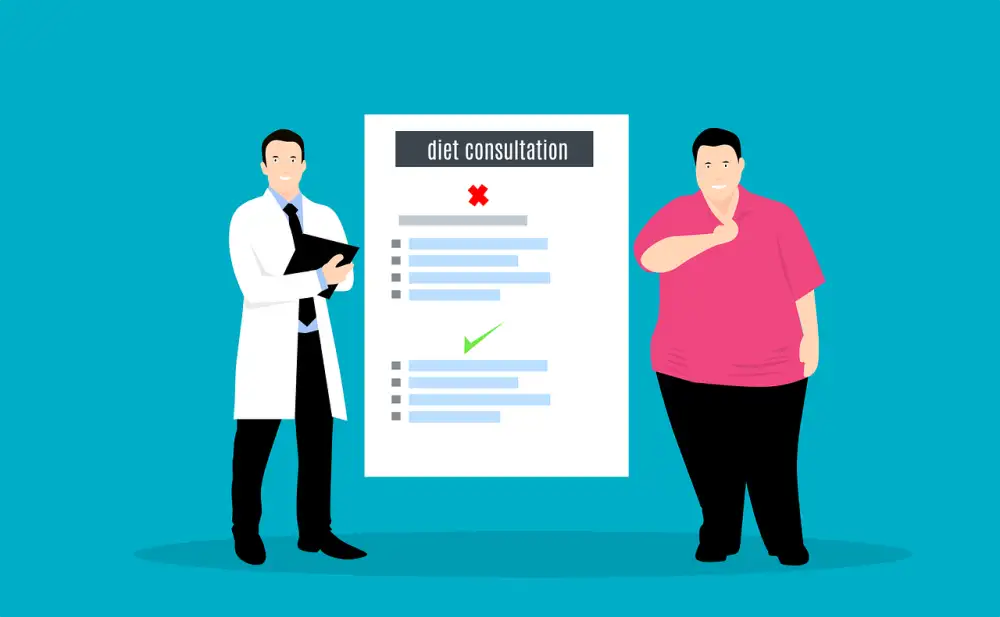Fuel Your Body with our 1500 Calorie Meal Plan for Optimal Health

- Benefits of Following a 1500 Calorie Meal Plan
- Understanding Calorie Counting and Weight Loss
- Building a Balanced and Nutritious 1500 Calorie Meal Plan
- Sample 1500 Calorie Meal Plan for a Day
- Tips for Successful Implementation of the 1500 Calorie Meal Plan
- Adjusting the 1500 Calorie Meal Plan to Individual Needs
- Frequently Asked Questions about the 1500 Calorie Meal Plan
Are you looking to improve your health and achieve your weight loss goals? Look no further than the 1500 calorie meal plan. This balanced and nutritious eating plan is designed to provide your body with the fuel it needs while promoting weight loss. By following this meal plan, you can enjoy delicious meals while keeping your calorie intake in check. Say goodbye to restrictive diets and hello to a sustainable way of eating that will nourish your body and support optimal health. Join us on this journey as we explore the benefits, tips, and sample meal plans of the 1500 calorie meal plan.
Benefits of Following a 1500 Calorie Meal Plan
Following a 1500 calorie meal plan offers numerous benefits for optimal health. Firstly, it promotes weight loss by creating a calorie deficit, leading to a sustainable and gradual reduction in body weight. Additionally, this meal plan encourages portion control and mindful eating, helping individuals develop healthier eating habits. It also ensures a balanced intake of essential nutrients, vitamins, and minerals necessary for overall well-being. Moreover, the 1500 calorie meal plan can improve energy levels, enhance digestion, and support better sleep patterns. Lastly, it can help reduce the risk of chronic diseases such as heart disease, diabetes, and certain types of cancer.
Understanding Calorie Counting and Weight Loss
Calorie counting is a fundamental aspect of weight loss. It involves monitoring the number of calories you consume and ensuring that it aligns with your daily energy needs. By creating a calorie deficit, where you consume fewer calories than you burn, your body will tap into its fat stores for energy, leading to weight loss.
It's important to note that not all calories are created equal. While a 1500 calorie meal plan can help with weight loss, the quality of those calories matters too. Opt for nutrient-dense foods like fruits, vegetables, lean proteins, whole grains, and healthy fats. These foods provide essential vitamins, minerals, and fiber while keeping you satisfied.
Remember that weight loss is a gradual process and requires consistency and patience. Aim for a slow and steady weight loss of 1-2 pounds per week by following your 1500 calorie meal plan and incorporating regular physical activity into your routine. This approach promotes sustainable weight loss and helps maintain muscle mass.
By understanding the principles of calorie counting and making informed food choices, you can achieve your weight loss goals while nourishing your body with the nutrients it needs for optimal health.
Building a Balanced and Nutritious 1500 Calorie Meal Plan
Building a balanced and nutritious 1500 calorie meal plan requires careful consideration of macronutrients and portion sizes. Aim to include a variety of whole foods such as lean proteins, fruits, vegetables, whole grains, and healthy fats. Distribute calories evenly throughout the day to maintain energy levels. Focus on nutrient-dense foods that provide essential vitamins, minerals, and fiber. Avoid processed foods high in added sugars and unhealthy fats. Consulting a registered dietitian can help ensure your meal plan meets your specific nutritional needs.
Sample 1500 Calorie Meal Plan for a Day
Breakfast:
- 1 cup of oatmeal with ½ cup of berries and a tablespoon of almond butter (300 calories)
- 1 boiled egg (70 calories)
- 1 small banana (90 calories)
Total: 460 calories
Lunch:
- Grilled chicken breast salad with mixed greens, cherry tomatoes, cucumber, and balsamic vinaigrette dressing (350 calories)
- 1 small apple (80 calories)
Total: 430 calories
Snack:
- Greek yogurt with a handful of almonds and a drizzle of honey (200 calories)
Total: 200 calories
Dinner:
- Baked salmon fillet with lemon and dill served with roasted vegetables (400 calories)
- Quinoa pilaf with sautéed spinach and garlic (250 calories)
Total: 650 calories
Snack:
- Carrot sticks with hummus dip (100 calories)
Total: 100 calories
Overall Total: 1840 Calories
Tips for Successful Implementation of the 1500 Calorie Meal Plan
Here are some tips for successful implementation of the 1500 Calorie Meal Plan:
1. Plan ahead: Take some time each week to plan your meals and snacks in advance. This will help you stay on track and avoid making impulsive food choices.
2. Include a variety of foods: Make sure your meal plan includes a balance of protein, carbohydrates, and healthy fats. Also, try to incorporate a variety of fruits, vegetables, whole grains, and lean proteins to ensure you're getting all the necessary nutrients.
3. Portion control: Pay attention to portion sizes and use measuring cups or a food scale if needed. It's easy to underestimate how much we're eating, so being mindful of portion sizes is crucial.
4. Stay hydrated: Drink plenty of water throughout the day to stay hydrated and help control hunger cravings. Sometimes thirst can be mistaken for hunger, so make sure you're drinking enough water.
5. Listen to your body: Pay attention to your hunger and fullness cues. Eat when you're hungry and stop when you're satisfied, rather than eating until you're overly full.
6. Be mindful of snacks: Choose nutritious snacks that are low in calories but high in nutrients. Opt for fresh fruits, vegetables with hummus, Greek yogurt, or nuts as healthy snack options.
7. Be consistent: Stick to the meal plan consistently for best results. Consistency is key when it comes to achieving your health goals.
Remember that everyone's nutritional needs are different, so it's important to consult with a healthcare professional or registered dietitian before starting any new meal plan or diet regimen.
Adjusting the 1500 Calorie Meal Plan to Individual Needs
While the 1500 calorie meal plan is a great starting point for many individuals, it's important to remember that everyone's nutritional needs are different. Factors such as age, gender, activity level, and overall health should be taken into consideration when customizing the plan.
For those who require more calories due to higher physical activity or faster metabolism, adjustments can be made by adding nutrient-dense foods such as lean proteins, whole grains, and healthy fats. This will help meet the increased energy demands while still maintaining a balanced diet.
On the other hand, individuals looking to lose weight may need to slightly reduce their calorie intake. However, it's crucial not to dip below 1200 calories per day as this can lead to nutrient deficiencies and negatively impact overall health.
Additionally, individuals with specific dietary restrictions or preferences can modify the meal plan accordingly. For example, vegetarians can substitute animal proteins with plant-based alternatives like tofu or legumes. Those following a gluten-free diet can opt for gluten-free grains such as quinoa or brown rice.
Remember, it's essential to consult with a healthcare professional or registered dietitian before making any significant changes to your calorie intake or meal plan. They can provide personalized guidance based on your individual needs and goals.
Frequently Asked Questions about the 1500 Calorie Meal Plan
Here are some frequently asked questions about the 1500 Calorie Meal Plan:
1. Is the 1500 Calorie Meal Plan suitable for everyone?
The 1500 Calorie Meal Plan is a general guideline for healthy individuals. It may not be suitable for those with specific dietary needs or medical conditions. Consult a healthcare professional before starting any new diet plan.
2. Can I lose weight with the 1500 Calorie Meal Plan?
Yes, the 1500 Calorie Meal Plan can help with weight loss by creating a calorie deficit. However, individual results may vary depending on factors such as metabolism and physical activity level.
3. Can I customize the meal plan to my preferences?
Absolutely! The sample meal plan provided is just a starting point. Feel free to swap ingredients, adjust portion sizes, or include foods you enjoy while staying within the calorie limit.
4. Are there any side effects of following a 1500 Calorie Meal Plan?
When followed correctly and with balanced nutrition, there should be no significant side effects. However, it's essential to listen to your body and ensure you're getting all necessary nutrients.
5. Can I exercise while on the 1500 Calorie Meal Plan?
Exercise is encouraged as part of a healthy lifestyle. However, if you're significantly reducing your calorie intake, it's important to monitor your energy levels and adjust your exercise routine accordingly.
Remember, it's always best to consult with a healthcare professional or registered dietitian before making any major changes to your diet or exercise routine.
In conclusion, the 1500 Calorie Meal Plan offers a practical and effective way to fuel your body for optimal health. By following this plan, you can ensure that you are consuming the right amount of calories while still enjoying delicious and nutritious meals. It provides a balanced approach to weight loss and promotes overall well-being. Embrace this healthy lifestyle and make the 1500 Calorie Meal Plan a part of your daily routine to achieve your health goals.
Published: 23. 12. 2023
Category: Health



